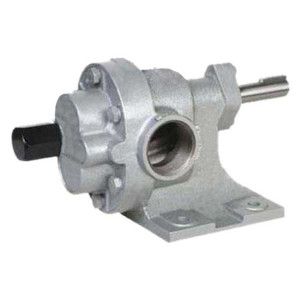Rotary Gear Pump Manufacturers In Uttar Pradesh
Details of Rotary Gear Pump
Precision in Fluid Transfer
In industrial applications where accuracy, reliability, and smooth flow are essential, rotary gear pumps stand as one of the most dependable solutions. Known for their ability to handle a wide range of viscous fluids with consistent performance, rotary gear pumps are widely used in industries such as oil and gas, chemicals, food processing, and lubricants manufacturing.
How a Rotary Gear Pump Works
This continuous, positive displacement mechanism ensures a steady and controlled flow rate, regardless of pressure variations. The precision of gear engagement and minimal internal leakage make these pumps ideal for applications where accurate metering and smooth operation are critical.
Types and Applications
Rotary gear pumps come in various designs, including external gear pumps and internal gear pumps.
External gear pumps are commonly used for transferring oils, fuels, and other lubricating fluids.
Internal gear pumps are suitable for handling thicker, more viscous materials such as molasses, paints, and adhesives.
Because of their compact structure, these pumps can be easily integrated into systems requiring continuous fluid circulation or precise dosing. They are also popular for applications that demand quiet operation and minimal maintenance.
Advantages of Rotary Gear Pumps
- Consistent and pulsation-free flow.
- High suction capability for viscous liquids.
- Compact design with long operational life.
- Self-priming features and easy maintenance.
Since the pump delivers a fixed volume of fluid per revolution, it provides reliable performance even under varying load conditions. This makes it a preferred choice for industries where precision and dependability are non-negotiable.
Quality Manufacturing and Reliability
Modern manufacturers focus on high-precision machining, advanced materials, and surface treatments to enhance wear resistance and minimize leakage. Stainless steel, cast iron, and bronze variants are available to suit different fluid types and working environments. Proper selection of gear profiles and sealing arrangements ensures maximum efficiency and extended service life.

